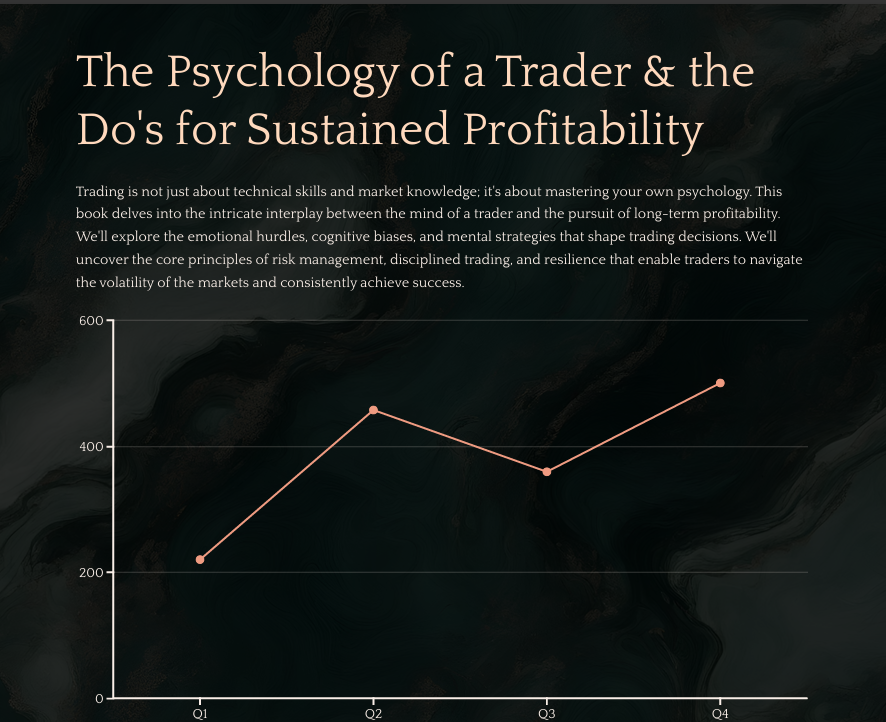TRADING IS A HIGH-STAKES PROFESSION WHERE LOSSES ARE INEVITABLE. THE KEY TO LONG-TERM SUCCESS IS DEVELOPING MENTAL RESILIENCE.
WHY MENTAL RESILIENCE IS IMPORTANT
Every trader will experience drawdowns, periods of loss, and volatility. The ability to recover from these challenges without letting them affect your confidence is what separates successful traders from those who quit. Mental resilience is your ability to handle your stress and keep moving forward, regardless of setbacks.

COPING WITH LOSSES.
Losses are inevitable in trading, but your response is what truly matters. Resilient traders see losses not as personal failures but as opportunities to learn. They refine their strategies and grow from each mistake, steering clear of frustration and emotional trades intended to “recover” losses.

BUILDING MENTAL TOUGHNESS.
Techniques such as mindfulness, meditation, and visualization can help build mental toughness. Mindfulness, for instance, helps traders stay in the moment, reducing anxiety about the future or regret about the past. Meditation trains the mind to remain calm and focused, even in stressful market conditions. Regular practice of these techniques can make a huge difference in your trading performance.
Developing Mental Resilience in Trading: A Trader’s Guide
In the dynamic and often unpredictable world of trading, mental resilience is a crucial asset. It’s the ability to bounce back from setbacks, maintain focus during challenging times, and stay composed under pressure. Without mental resilience, even the most skilled traders can find themselves struggling to navigate the emotional rollercoaster of the markets.

Why is Mental Resilience Important?
- Emotional Regulation: Mental resilience helps traders manage their emotions effectively, preventing impulsive decisions and irrational behavior.
- Decision-Making: A resilient trader can make sound decisions, even in the face of uncertainty and adversity.
- Risk Management: Mental resilience allows traders to maintain a disciplined approach to risk management, avoiding excessive leverage and impulsive trades.
- Stress Management: Resilient traders are better equipped to handle the stress and pressure that come with trading.
How to Develop Mental Resilience.
- Mindfulness and Meditation: These practices can help you stay present, reduce stress, and improve emotional regulation.
- Visualization: Imagine yourself succeeding in your trading endeavors. Visualization can boost your confidence and help you develop a positive mindset.
- Positive Affirmations: Repeat positive statements to yourself to counter negative thoughts and beliefs.
- Goal Setting: Set clear, achievable goals and break them down into smaller steps. This can help you stay focused and motivated.
- Learn from Mistakes: View setbacks as opportunities for growth. Analyze your mistakes, identify areas for improvement, and adjust your strategy accordingly.
- Seek Support: Connect with other traders or mentors who can offer guidance and support. Sharing experiences can help you feel less alone and more motivated.
The Consequences of Lacking Mental Resilience.
Without mental resilience, traders may experience:-
- Impulsive Decision-Making: Emotional outbursts can lead to rash decisions, resulting in financial losses.
- Overtrading: Overtrading is a common mistake among traders that can silently erode profits. It occurs when you trade too frequently or with excessive size, often driven by emotions like fear of missing out or greed. This can lead to increased transaction costs, higher risk exposure, and reduced returns. To avoid overtrading, it’s essential to stick to a well-defined trading plan, manage your emotions effectively, and be patient. Or you can decide how much trades you take in a single day and also decide how much risk you are going to take in a single day, work on this practice I will promise you this will definitely reduce your loosing streeks and increase winning streeks.
- Loss Aversion: The fear of losing money can paralyze traders, preventing them from taking profitable opportunities.
- Pause After Big Wins and Losses: After a significant profit or loss, it’s crucial to take a step back and reflect on your trading decisions. Emotions can run high in these situations, making it difficult to make rational choices. By taking a break, you can allow your emotions to settle and gain a clearer perspective. This pause can help you avoid impulsive trading decisions that might lead to further losses.
- Burnout: Chronic stress and emotional exhaustion can lead to burnout, affecting both trading performance and overall well-being.
Developing mental resilience is an ongoing process. It requires consistent effort and self-awareness. By incorporating these techniques into your trading routine, you can enhance your emotional well-being, improve your decision-making, and ultimately achieve greater success in the markets.
